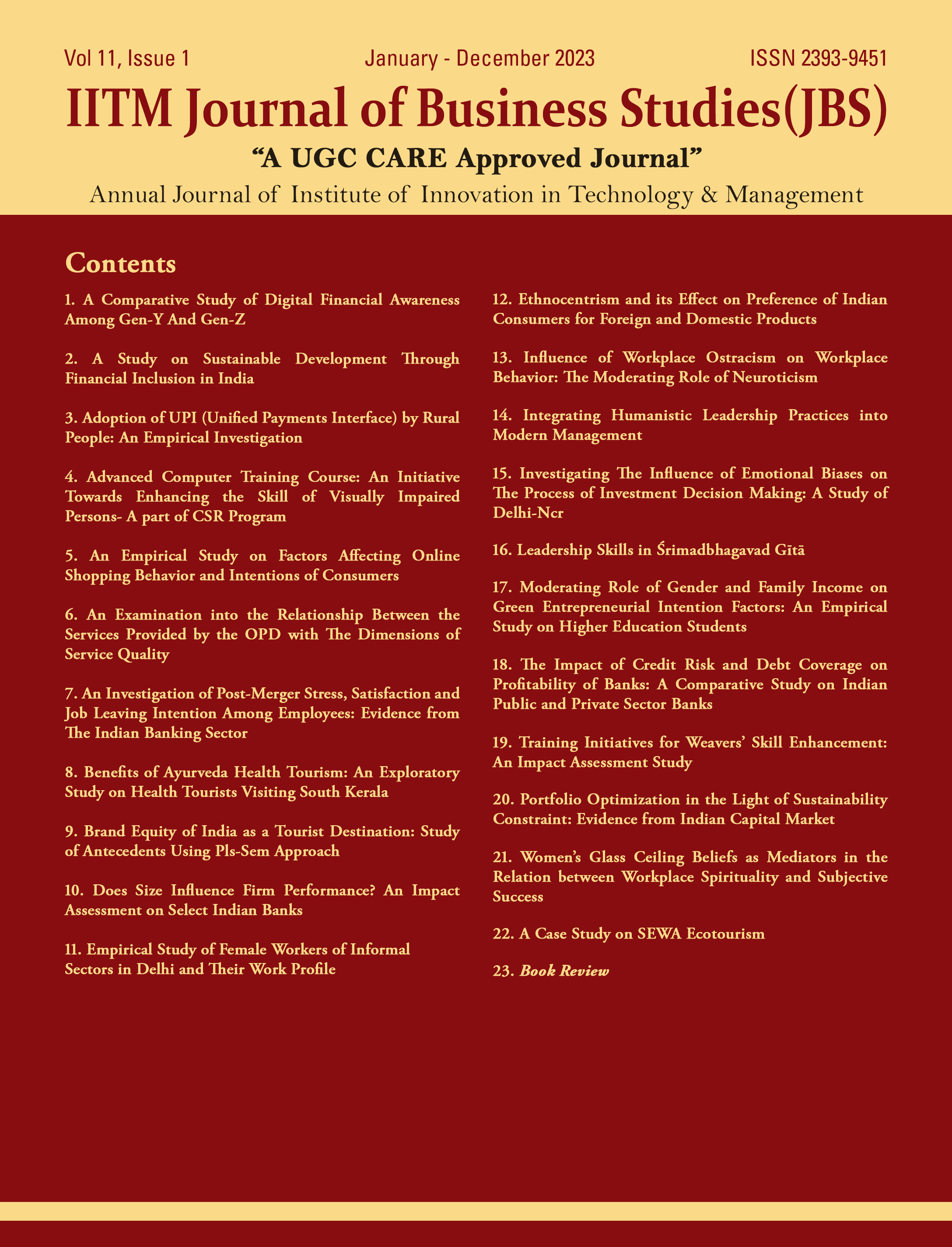Bank Employees Task Performance: A Role of Leadership Style with Reference to Indian Banking Industry
Keywords:
Transformational, transactional, Leadership styles, banking sectorAbstract
Leading with sustainability in this high-tech global competition had become a major concern for every single organization all over the world. Here, not only customer expectation but employees' aspirationswere also accelerating day by day, which had captivated banks too for focusing on the excellency whether it was a company's product or its company employees. Employee's high-level performance & development had become an enormous challenge, where it had been acknowledged that manager's leadership behavior can had a constructive influence on their employees, which stimulate employee's performance for long term growth. Task performance was most pertinent and directly connected to the organization's goal, where employees' behaviors, efforts were rightly indulged into the prescribed job activities, and technical process of organizations. Thus, to retain & increase task performance in banks, there was a need to strategized a perfect leadership style along with other HR tactics. Thus, this analytical study aim was to identify the role of Bank supervisor's leadership style on their employee task performance, where the hypothesis was tested through a multi-stage sampling of 422 employees from public & private banks in India.
References
Avolio, B.J. (1999). Full leadership development. Thousand Oaks, CA: Sage.
Barney, J. (1995). Looking inside for competitive advantage. Academy of Management
Bass, B. M. (1985). Leadership and performance beyond expectations. New York, NY: Free Press.
Bass, B. M., & Riggio, R. E. (2006). Transformational leadership. Manwah, NJ: Psychology Press.
Borman, W. C. and Motowidlo, S. J. (1993) Expanding the criterion domain to include elements of contextual performance. In Personnel Selection in Organizations (N. Schmitt & W. C. Borman, eds), pp. 71-98.
Borman, W. C., & Motowidlo, S. J. (1997). Task performance and contextual performance: The meaning for ass.ccsenet.org Asian Social Science Vol. 13, No. 3; 2017 112 personnel selection research. Human performance, 10(2), 99-109
Executive, 9 (4): 49-61. Yukl, G (1998, 2002), Leadership in Organisations, 5th edition, Prentice Hall, USA.
Flippo, E. G. 1995. Personnel Management. New York: MacGrawHill.
Hamel, G., & Prahalad, C. K. (1994). Competing for the future. Boston, MA: Harvard Business School Press.
Koopmans, L., C. M., Hildebrandt, V. H., Schaufeli, W. B., de Vet Henrica, C., & van der Beek, A. J. (2011). Conceptual frameworks of individual work performance: A systematic review. Journal of Occupational and Environmental Medicine, 53(8), 856-866.
Kumar Alok (2014) "Authentic leadership and psychological ownership: investigation of interrelations", Leadership & Organization Development Journal, Vol. 35 No. 4, pp. 266-285 https://doi.org/10.1108/ LODJ-06-2012-008
Northouse, Peter. G. (2001). Leadership: Theory and Practice. Dage Publications. Inc. Thousands
Van Scotter, J., Motowidlo, S. J., & Cross, T. C. (2000). Effects of task performance and contextual performance on systemic rewards. Journal of Applied Psychology, 85(4), 526-535. http://dx.doi.org/10.1037/ 0021-9010.85.4.526

